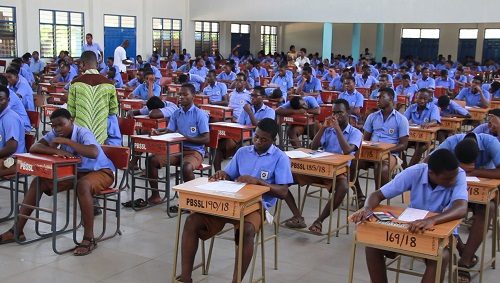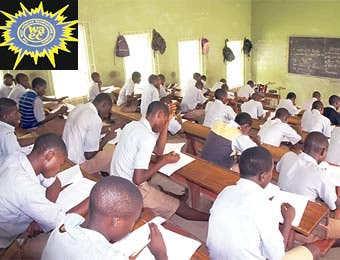How to become an examiner or checker with WAEC and NECO (Complete Guide)

Every session the Senior School Certificate Examination (SSCE) is conducted by the West African Examinations Council (WAEC) or the National Examinations Council (NECO), it engages some personnel to help in getting the scripts marked and scored.

You may have asked yourself ‘How do I get qualified to mark WAEC or NECO?’ Here is your answer.
Both WAEC and NECO have their members of staff in various offices across Nigeria. But they don’t directly do the script marking. Actual teachers, educators and other personnel are involved.
Adhoc personnel such as examiners, and checkers participate in the coordination and marking exercises along with WAEC or NECO officials.
How to become an examiner or checker with WAEC and NECO
The process of becoming an examiner or checker starts with establishing that you are qualified to be selected.
In this post, we will guide you on what it takes to become an become an examiner or checker and the needed criteria.
Please, note that your qualification to mark with WAEC does not count when you wish to mark scripts with NECO.
Requirements for examiners
Three forms of examiners exist. They are the Chief Examiners, the Team Leaders, and the Assistant Examiners.
The basic requirement to be an examiner is having a degree in the subject you want to mark or something related to that.
If, for instance, you want to mark English Language, you must have a bachelor’s degree in English or Linguistics. But those who studied Mass Communication or Linguistics with specialisation in another language other than English may not be allowed to mark scripts, even if they have dozens of years’ experience teaching the subject.
You are also expected to have completed the National Youth Service Corps (NYSC) programme, and present your NYSC Discharge Certificate, according to the agency. This requirement may not be implemented if you are currently a serving corps member.
A verification exercise would be done for all examiners by your subject officer. So, make sure you go to the marking venue with the original and photocopy of your certificates.
The examination bodies also emphasise that examiners participate fully in the days of the coordination exercises.
Ensure that you mark attendance while there and arrive early to learn from the exercise.
The coordination is integral to the marking as it serves as an orientation exercise for participants on the nature of the scripts they would mark and how they should mark such. You are also made to go through the marking guide and mark sample answers of candidates.
It may be held for either two or three days. After the coordination, examiners would be issued parcels of examination scripts to mark and return.
Each subject has a Chief Examiner who is assisted by Team Leaders that coordinate Assistant Examiners.
Chief Examiner
The Chief Examiner is responsible for the conduct of all examiners and interfaces between the examination bodies and the examiners from time to time. He coordinates with the Centre Manager, who is usually the leader of the WAEC or NECO staff at the Marking Centre.
Each subject has its Chief Examiner in each Centre. He/She has the sole responsibility of determining the order with which exam answers would be marked, based on the marking guide.
This is usually someone who had about ten years experience marking the subject. They are determined and appointed by the examining bodies.
The person appointed for this position also gets to vet the marked scripts of Team leaders.
Team Leaders
Team leaders are the next in line to the Chief Examiner. They may have almost equal level of qualifications to the Chief Examiner but have to report to him or her.
Their job involves assisting the Chief Examiner. They vet the works of AEs just as they also mark examination scripts.
Generally, the examination bodies also appoint Team Leaders. The Chief Examiners may use his discretion to appoint more Team Leaders among Assistant Examiners based on the need for it.
Assistant Examiners
Other examiners who are neither of the two above are designated Assistant Examiners (AE). Their experience vary from zero to the longest possible time marking for WAEC/NECO. You need to start as an AE before progressing to other levels in the examiner cadre.
If it’s your first attempt marking for WAEC/NECO, it is advisable to apply either by visiting their office in your state or applying online.
Only WAEC has the online examiners registration service, which is also used for validation of current examiners. Current NECO examiners or invigilators can validate their status also.
The list of WAEC offices, and NECO offices have been previously published on GoPro School website too. Click on the links to view the address of the one nearest to you.
If your application is successful, you would be invited to mark via text message and/or email.
Alternatively, you may try your luck as a ‘gatecrasher’. After marking for WAEC or NECO in a year, you should start receiving invitations to subsequent marking exercises.
Gatecrashing
It is possible to get your first shot as an examiner by gatecrashing, as already said. This means that you participated in the coordination without prior invitation.
In this sense, your chances of being selected is very low compared to those originally invited for the exercise. But once you get approved as an AE, you have a high chance of getting invited the subsequent years.
Requirements for checkers
Checkers are those who crosscheck the works of all examiners, as that sounds.
Their work starts from when the parcels of scripts are delivered to the marking centres. They confirm the number of scripts stated on each label and whether the attendance and result sheets were attached.
After examiners finish marking and computing scores in the provided sheets, checkers verify that these are done rightly.
If there are discrepancies, the examiners would be directed to correct such before being cleared.
You don’t require a degree to be a checker. You should be sound in arithmetic, at least.
Be also ready to spare enough of your time each day throughout the duration of the marking exercise. Money is paid based on the number of hours spent for checkers.
A student in the tertiary institution would be allowed to be a checker once he/she passes the free qualifying test conducted by WAEC. Other people who don’t want to go through the ‘stress’ examiners talk of may also try this out.
After these persons complete their works, WAEC continues the process of getting candidates’ results ready based on its schedule.
Have you ever tried joining the marking exercise in your capacity as either an examiner or a checker? Kindly share your experience with us using the comment box below.





Responses